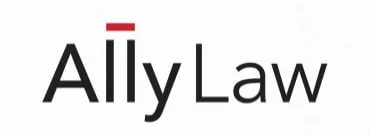Since early 2022, Brazil's Administrative Council for Economic Defense (Conselho Administrativo de Defesa Econômica, or CADE) has increasingly raised concerns over the potential anticompetitive effects of exclusive dealing arrangements and exclusivity clauses in unilateral conduct investigations and merger cases.
On the other hand, CADE has reaffirmed its understanding that exclusivity clauses are not illegal, per se, and has noted that the assessment of such clauses' potential anticompetitive effects must take into consideration the legitimate economic rationale for the exclusivity.
Unilateral conduct investigations
The opening of unilateral conduct investigations involving exclusivity clauses has been on the rise. The latest one, begun in March 2022, involves an investigation against Ambev following complaints from Heineken. Heineken alleges that Ambev's exclusive dealings with strategic and premium point of sale (POS) have anticompetitive effects.
In February 2022, in the context of an investigation of alleged abuse of dominant position in the market for corporate wellness platforms, CADE's tribunal ordered the platform Gympass to suspend exclusivity clauses imposed against fitness companies registered within its platform. The Tribunal argued that most such exclusivity clauses lack economic rationality. CADE also ruled that exclusive dealings with gyms that received direct investments from Gympass could exceptionally be preserved due to the economic reasonableness in ensuring return on investment.
Merger cases
In merger cases, CADE's attention to exclusivity clauses has resulted in comprehensive assessments of their rationale and resulted in callbacks by the Tribunal after approval by CADE's General Superintendence (SG), and remedies that specifically focus on exclusivity matters.
In January 2022, CADE's Tribunal cleared the acquisition of Bus Serviços, an online travel agency (OTA) of J3 Operadora Logística, subject to behavioral remedies that included prohibiting Bus Serviços from signing exclusive agreements with bus terminals and other OTAs. According to CADE, potential exclusive agreements would increase the risk of market foreclosure by the new verticalized company.
In February 2022, CADE's Tribunal unanimously approved the acquisition, by Sony Music, of the music recording company Som Livre, owned by Globo Group. The deal, unconditionally cleared by CADE's SG, had been called back for further analysis by CADE's Tribunal in November 2021, upon request by Commissioner Lenisa Prado, who raised concerns on the potential anticompetitive effects of exclusivity clauses in the agreements between record labels and artists. Ultimately, the clauses were deemed economically justified, due to the necessary investments in the artist's image and in publicity.
Click here to read the original article in the April 2022 Brazilian Competition Case Law, Trade & Trends newsletter of Ally Law member firm Cascione Pulino Boulos Advogados
The content of this article is intended to provide a general guide to the subject matter. Specialist advice should be sought about your specific circumstances.

